Is the Middle East on the brink of Armageddon?
There are so many pivotal actors, so many moving parts, in the Middle East security theatre that miscalculation and devastating conflict are real possibilities. Two other factors make the situation even worse.
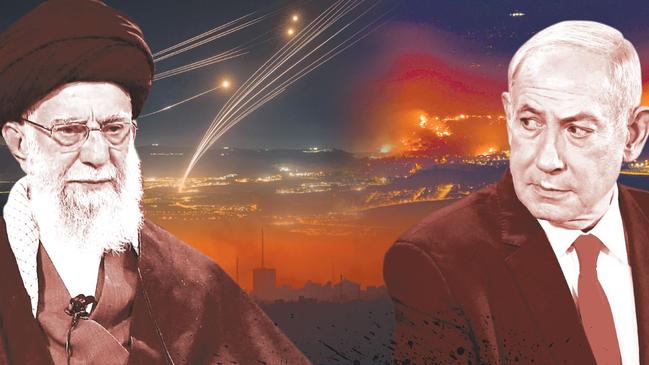
Nothing is certain. Iran’s leadership has promised, publicly, loudly and repeatedly, that it will strike Israel militarily. It says this is to avenge the killing of Hamas leader Ismail Haniyeh on July 31 in Tehran. This killing was carried out by Israel, although Jerusalem has not claimed responsibility for the event.
Haniyeh has been replaced as overall Hamas leader by Yahya Sinwar, the architect of the October 7 atrocity. A ceasefire may still be on the cards, but whenever Sinwar shows his face the Israelis will surely kill him.
A day before Haniyeh’s death, an Israeli strike killed Hezbollah’s military commander, Fuad Shukr, in Beirut. The Israelis were responding to a Hezbollah 50kg rocket that hit an Israeli Druze village and killed 12 young people. As a result of the death of its military commander, Hezbollah too has vowed, repeatedly and explicitly, a major strike on Israel.
So Iran and Hezbollah have now committed to military actions against Israel in coming days, perhaps on August 11 or 12, during a Jewish holy day.
The world has taken these threats seriously. The Albanese government advised Australians in Lebanon to leave now, while they can. Numbers of international airlines have stopped flights to Beirut and some to Israel. Others have decided to avoid Iranian air space.
Israel’s Prime Minister, Benjamin Netanyahu, says Israel is already at war with Iran.
Netanyahu sees Iran as a unique existential threat to Israel. He also sees it as having a much bigger significance in global politics. In his recent speech to the US congress, Netanyahu said: “For Iran, Israel is first, America is next. So, when Israel fights Hamas, we’re fighting Iran. When we fight Hezbollah, we’re fighting Iran. And when we fight Iran, we’re fighting the most radical and murderous enemy of the United States.
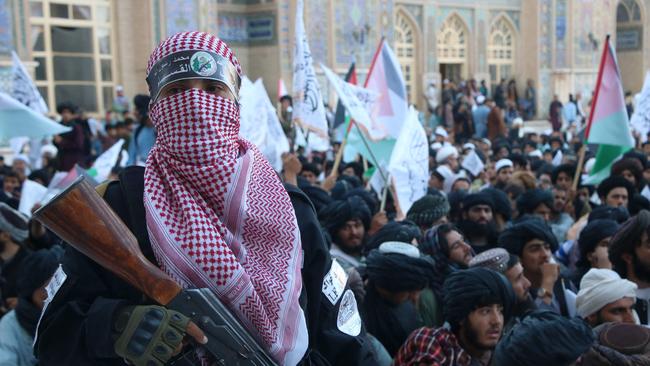
“When Israel acts to prevent Iran from developing nuclear weapons, nuclear weapons that could destroy Israel and threaten every American city … we’re not only protecting ourselves, we’re protecting you … Our enemies are your enemies, our fight is your fight.”
I’ve interviewed Netanyahu six or eight times in his long career, three times when he was Prime Minister. Way back in 2012 he made international headlines when he told me the US and Israel had to have a military option, and be prepared to use it, to stop Iran from acquiring nuclear weapons. The Shi’ite state is much closer today to nuclear weapons than it was then.
For its part, Iran’s leadership seethes with visceral hatred of Israel. Even in Australia, the Iranian ambassador thought it good form to tweet out a statement that he hoped the “Zionist plague” would be “wiped from the map” by 2027.
Iran’s Supreme Leader, Ayatollah Ali Khamenei, promised “harsh punishment” for Israel. Hossein Salami, the commander of Iran’s Revolutionary Guard Corps, vowed a “severe response” to teach Israel a lesson.
Senior Iranian officials reportedly told Arab governments they no longer cared whether their forthcoming attack on Israel caused an all-out regional war. This may be a bluff, or at least stylised military signalling.
‘Was it right to kill Haniyeh? I think it was very right.’
Hezbollah’s leader, Hassan Nasrallah, also told his own people his group would hit Israel harder than before. In a fiery speech in Beirut he declared: “We have not sought escalations until now, we have been fighting in support of Gaza but keeping in mind the Lebanese national interest. Every time one of our commanders was killed, our response was heightened but always measured.
“But the assassination of a top (Hezbollah) leader (in Beirut) must be treated differently. Our response is coming, God willing, from us and the axis of resistance – and it must be strong.”
The “axis of resistance” Nasrallah is talking about is Iran and its regional proxies, namely Hezbollah, the Houthis in Yemen, Shi’ite militias in Iraq and Syria, and Hamas as well as Palestinian Islamic Jihad in the Palestinian territories.
All except the Palestinian groups are Shi’ite. Iran has always aspired, mostly forlornly, to lead and inspire the entire Muslim world. Its leaders had close connections to the Sunni extremist Muslim Brotherhood. Although the Arab Middle East generally is divided into Sunni versus Shia, this hasn’t stopped Iran from supporting, supplying and effectively leading Hamas and PIJ.
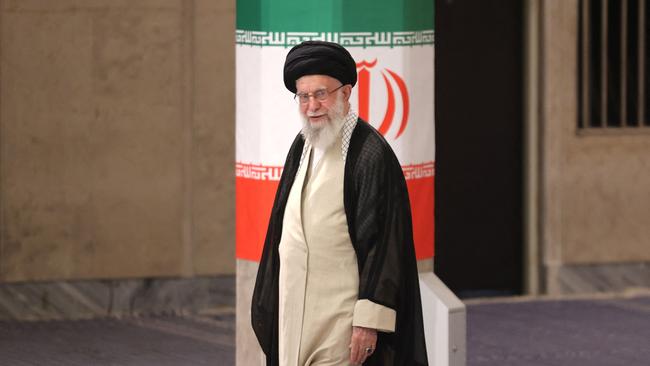
All the axis of resistance is united by extreme interpretations of Islam, hatred of Israel and a cosmology that blends worldly politics and transcendent meaning and sees the US as the “great Satan”. The conflicts are essentially religious and therefore almost certainly insoluble.
It’s reasonable nonetheless to conclude that none of the parties wants all out-war now. But Iran and its proxies are committed to destroying Israel in the long run. Each round of conflict reaches new levels of violence and danger, even as it stays, so far, short of all-out war.
But each round is more dangerous than the last. Iran and Hezbollah are now publicly committed to attacking Israel. Each is having an internal debate about how to do it.
Iran has been steadily ratcheting up pressure on Israel. Hamas inflicted deep psychological, physical, financial and military damage on Israel in the October 7 atrocities.
But Hamas is nearly exhausted now. Hezbollah and the Houthis have been firing rockets at Israel in support of Hamas ever since shortly after October 7. This, too, has imposed a cost on Israel. Some 60,000 to 80,000 Israelis who live in the north of the country, in towns such as Kiryat Shemona and Metulla, are displaced, living in hotels or with relatives.
Hezbollah has calibrated these attacks carefully, making them enough to impose a real cost on Israel but not enough to provoke it into major military operations against Hezbollah.
The Lebanese terror group is now the world’s biggest non-state military force. The numbers are disputed but it has something like 50,000 active fighters (perhaps a fraction fewer) and a similar number of reserves.
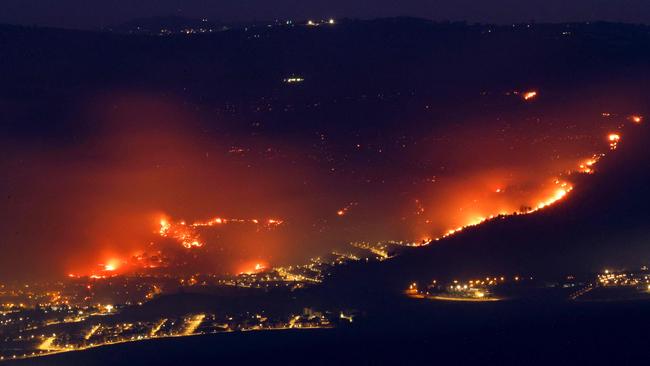
It also has a huge arsenal of mortar shells, drones, short-range and long-range missiles, many now with precision guidance. These have been supplied mainly by Iran. It’s a much better equipped and more formidable force than Hamas. It could fire 3000 projectiles a day at Israel. This would massively deplete Israel’s missile defences and might even overwhelm them.
Israel is caught between a rock and a hard place. If it allows Hezbollah to continue firing missiles at a lower rate with impunity, its northern towns will be permanently depopulated and its economy handicapped.
But if it strikes hard to degrade Hezbollah it will suffer horrible casualties and will be condemned by world opinion, which apparently believes in Israel’s right to self-defence only in theory.
Israel, through the operation in Gaza, and now through targeted strikes at Hezbollah leaders beyond southern Lebanon, is systematically re-establishing deterrence. Leaders who inflict damage on Israel know they are legitimate targets and likely to be killed.
Similarly, Israel is working systematically to re-establish deterrence with Iran. In April Iran was humiliated when it fired 300 drones, rockets and missiles at Israel and only one caused any damage. This was partly because the US deployed forces and helped Israel intercept many missiles. Critically, so did Jordan and Saudi Arabia.
The Biden administration convinced Israel to strike back only symbolically, a surgical attack on Iranian air defences near its nuclear establishment. Israel’s message was simple: it can hit any target in Iran.
The killing of the Hamas leader, Haniyeh, in Tehran was a studied humiliation of Iran. Haniyeh was killed at a secure state safe house while visiting Iran for the inauguration of the new President, Masoud Pezeshkian. The bomb that killed him was planted by Iranian agents working for Israel.
This is a humiliation for the Iranian state on several levels.
It can’t protect a guest. Israel has penetrated it sufficiently to know the most sensitive intelligence information. Israel can motivate and pay agents within Iran, and deploy them to hit the most sensitive targets.
Thus both Iran and Hezbollah are having fierce internal debates, plus co-ordinating with each other, as to how they want to hit Israel. Jerusalem has told Hezbollah in no uncertain terms that a big Hezbollah strike will occasion a bigger response from Israel. Nothing symbolic this time.
So unless it’s ready for a war of annihilation, Hezbollah wants something that hurts Israel, preferably in Tel Aviv or Jerusalem, but still doesn’t lead to 300 Israeli planes a day smashing up Hezbollah and its infrastructure.
Northern Israeli towns fear something even worse than missiles, and that’s a swift ground operation aimed at inflicting atrocities along the lines that Hamas undertook on October 7.
Back then, Israel was so complacent it had only four battalions of soldiers within 100km of the Lebanese border.
I have travelled along much of that border. It’s beautiful country. Israel’s former strategy was to have various physical blockades, high concrete walls and the like, at points they thought a rush by Hezbollah might be most likely. They also had towns, such as Metulla, that struck right into Lebanese territory and acted as watch posts. You could go to community centres, cafes and even old folks’ homes in northern Israel and stare down at Hezbollah flags.
Israel won’t tolerate that kind of exposure any longer and has used air power to push heavy formed Hezbollah forces north of the Litani River, about 30km from the Israeli border.
Conspiracy theories abound. One is that Hezbollah wants to provoke Israel into a major campaign so the Jewish state suffers crippling casualties and insupportable international criticism. An opposite line of thought is that Israel is assassinating high-profile leaders to provoke Hezbollah into giving it the justification to mount a major operation in southern Lebanon.
In all this, Hezbollah’s calculations are complicated by the determination not to mount an attack of its own and have it fail, the way Iran’s April attack failed.
The Biden administration has moved substantial air and naval resources into the region and this bolsters Israel’s ability to neutralise missile attacks.
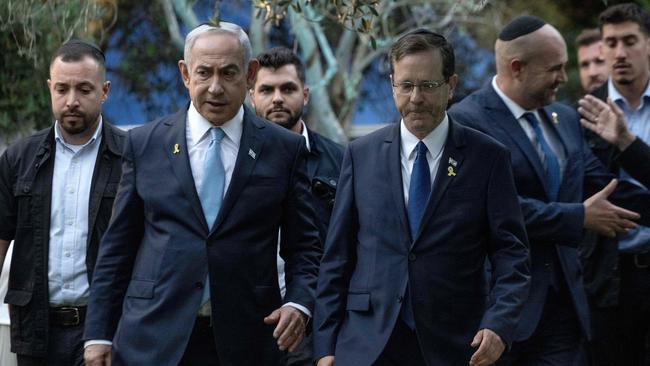
The new Iranian President, Pezeshkian, has been publicly begging his Supreme Leader not to start a war with Israel, just as virtually the whole of Lebanon wants Hezbollah to avoid a major war. Iran can’t afford a war with Israel. Iran’s voters have no affection for the Jewish state, but they don’t want another crippling war, a new setback to their efforts to lead normal lives.
Pezeshkian reportedly has argued that the Israelis have set a trap for Iran by assassinating Haniyeh in Tehran. For years Israel has wanted to attack Iran’s nuclear facilities. They wouldn’t be able to destroy Iran’s nuclear program, but they could surely set it back for years. The Israelis have been stopped by the Americans. If Iran mounts a major offensive against Israel, the Israelis will respond with devastating force and would almost certainly target Iran’s nuclear program.
A new factor in Israel’s calculations may be the prospect of a Kamala Harris presidency.
Joe Biden is in some ways a weak President but he is an instinctive supporter of Israel. Donald Trump as president was extremely good for Israel.
‘Under Harris, there will be no one in the White House committed to Israel.’
But Harris this week met organisations that favour a US arms embargo against Israel and has said she will continue to engage with such groups. It’s hard to imagine even a Harris administration abandoning Israel. Congress would never allow it. But Biden may be the last pro-Israel Democrat to occupy the White House for some time. This is underlined by Harris overlooking the Jewish, pro-Israel Governor of Pennsylvania, Josh Shapiro, as her vice-presidential running mate.
Under Harris, there will be no one in the White House committed to Israel. It may well be a consideration for Jerusalem to strike a blow against Iran’s nuclear program while it still has a friendly administration in Washington.
The Biden administration has been urging de-escalation on all sides. But sometimes to get long-term de-escalation, short-term escalation is necessary.
America’s deterrent credibility has withered under Biden. Israel has been systematically rebuilding its own deterrence credibility. Some commentators scold the Israelis for assassinating Haniyeh and other high-profile figures. Israel’s most sagacious strategic analyst, Ehud Yaari, has a different view.
He tells Inquirer: “Was it right to kill Haniyeh? I think it was very right. He became a symbol of Hamas. He was actually a negative influence on the hostages. Why not show Iran how exposed it is? It helps.”
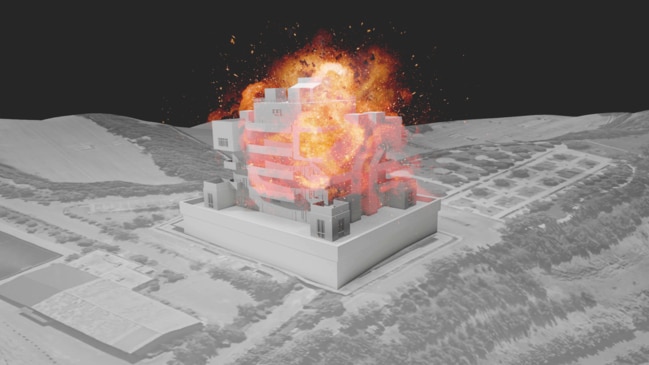
But many wars, some of them giant, devastating conflicts with millions of casualties, have started with miscalculations in tinderbox conditions.
The 1914 assassination of Archduke Franz Ferdinand by anarchists was never meant to cause World War I. The communist Pol Pot regime in Cambodia kept provoking Vietnam until the bigger communist neighbour crushed it in 1978-79. Iraq’s Saddam Hussein led his neighbours and his people to believe he had weapons of mass destruction. He also unwittingly convinced the Americans of this and that led to the invasion of Iraq.
There are just so many pivotal actors, so many moving parts, in the Middle East security theatre that miscalculation and devastating conflict are real possibilities. Two other factors make the situation even worse. Weapons, even conventional weapons, have become far deadlier and more difficult to stop.
If Iran ever decides on all-out war with Israel it may phase attacks against Israel coming from itself and all of its proxies.
If Israel is ever cut off from the ready supply of US ordnance, its technological superiority against its Arab neighbours will count for less.
Similarly, if Israel ever feels it must carry out a ground operation against Hezbollah in Lebanon it will be bitter and bloody and draining indeed.
The other factor is that Iran is a strategic ally of both Russia and China. They have distinct national interests from Iran but they won’t want it to suffer decisive defeat from America’s most important regional ally, Israel. There’s much they can both do, far short of boots on the ground, to help Iran in a conflict.
At the same time, Biden’s position with the Gulf Arabs, Israel’s natural allies in the region, is weaker than Trump’s was.
Israel, backed by America, has enormous military power. Nonetheless, the correlation of forces in the Middle East is finely balanced. Every local militia in the region is backed by a strong nation, and every strong nation is backed by a superpower. And the hatreds are timeless. In Iran’s case, they form a central part of the raison d’etre of the state.
The conditions for conflict are ripe, the many paths of escalation easily accessed, the chances of any peace slender and faint.


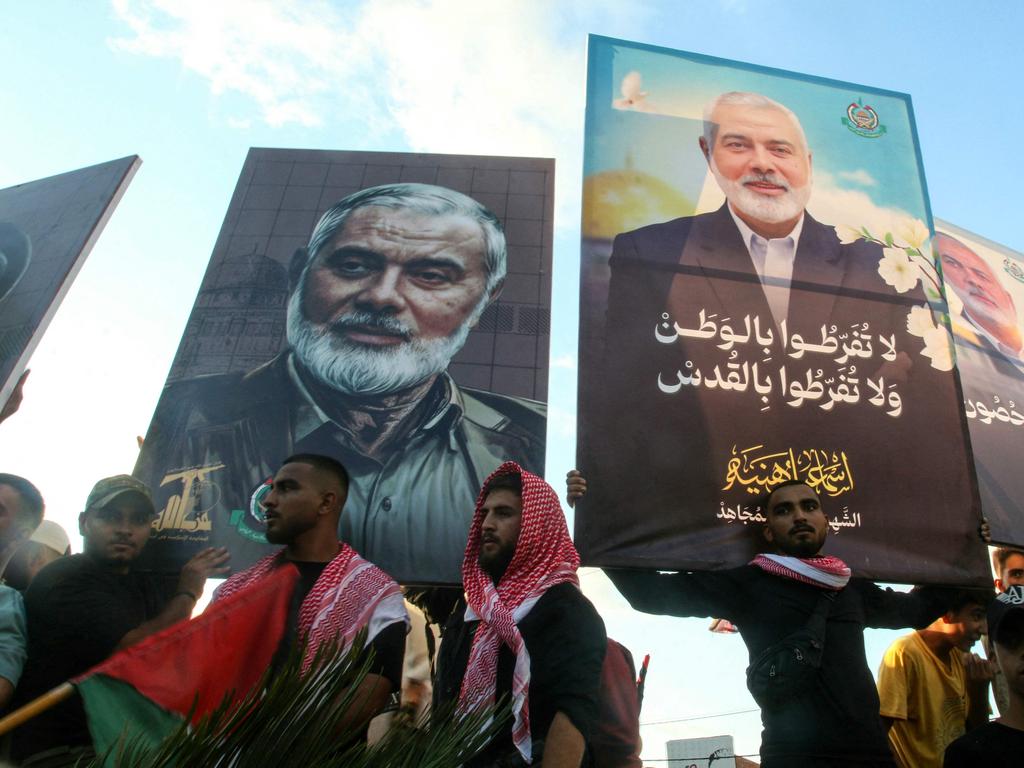
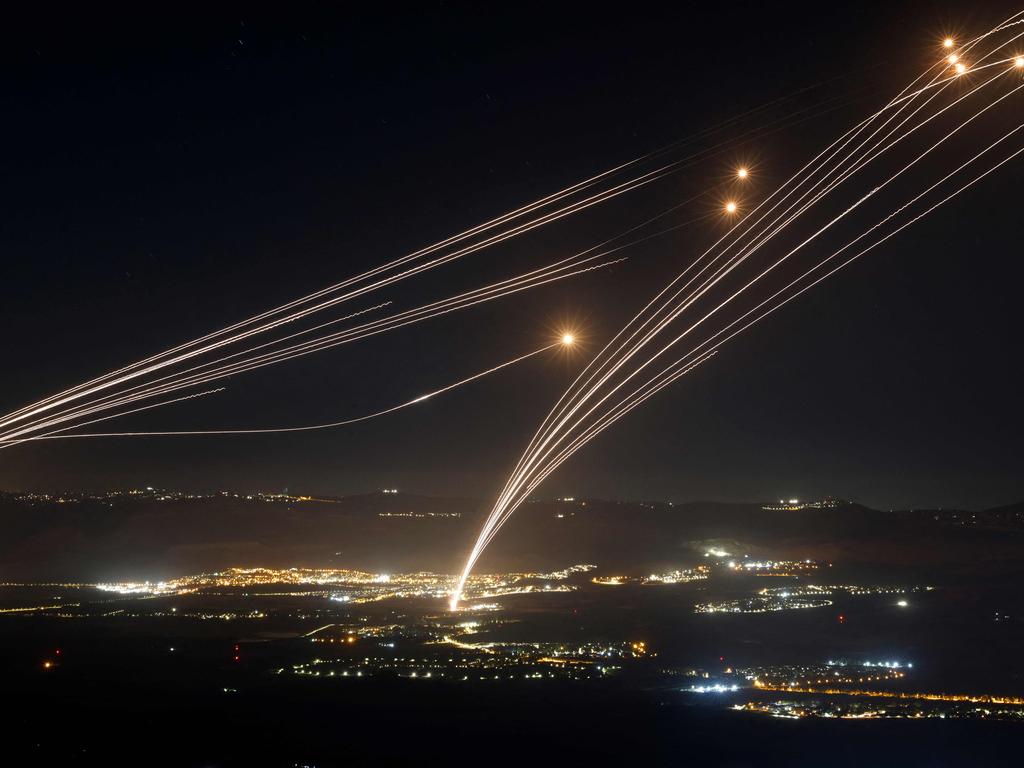


Is the Middle East inching towards all-out war? The answer is probably yes, over time.